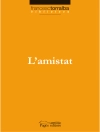The politics of pluralism has long been an intractable characteristic of American public education. Today, perhaps more so than ever, educators grapple with an awareness of the fact that liberal societies cannot promote a particular vision of the moral life and still respect and uphold the multi-cultural values of a pluralistic society.
The Challenge of Pluralism examines the problematic issue of the role of moral education in a pluralistic society. The book takes an interdisciplinary focus, and contributors include well-known experts in such fields as psychology, educational policy studies, history of education, political history, curriculum, philosophy of education, theology, and gender studies. The essays delve into the myriad reasons for the moral education controversy and examine how the contemporary debate over the place of moral education in a pluralist society takes place within the larger context of the current arguments over the quality of American education. In addition to a historical examination of the values-pluralism issue, the volume offers critiques of specific educational regimens as they address the problem of moral education.
This volume offers relevant, pertinent discussions that will benefit professional educators, social scientists, and any individual concerned about the quality of American education and its ability to provide adequate moral and values education.
Contributors: Walter Nicgorski, Michael W. Apple, Rev. Michael Himes, Dwight Boyd, Ronnie A. F. Blakeney, Charles D. Blakeney, Daniel K. Lapsley, William Reese, Michael R. Olneck, Ann Diller, James W. Fowler, and F. Clark Power.
About the author
Daniel K. Lapsley is professor and chair of the Department of Educational Psychology at Ball State University.












